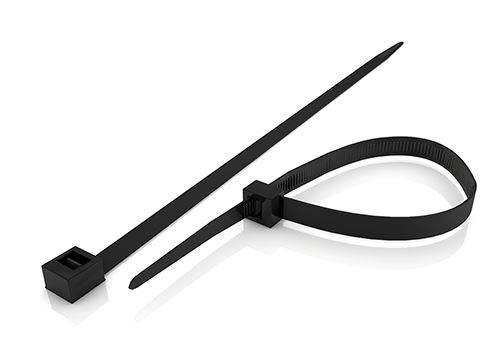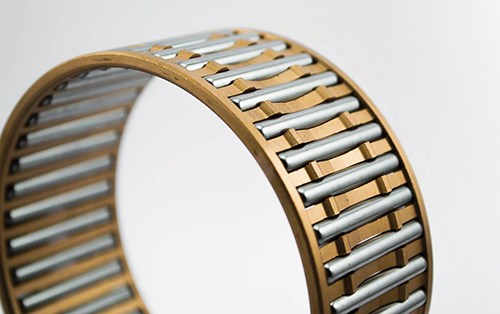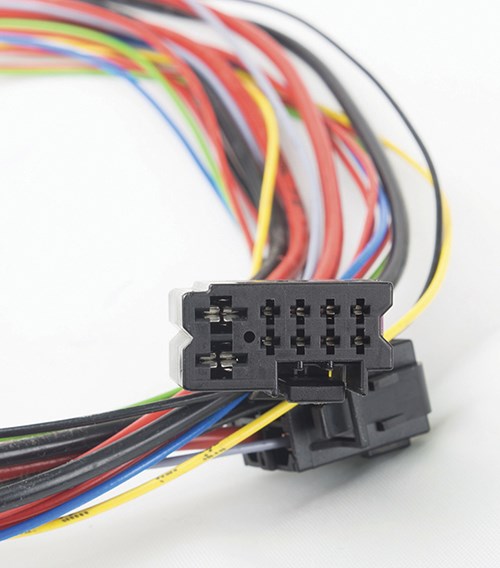New Materials Offer Cost, Performance Advantages to PEEK in Automotive
Engineering Resins
Two new families of PAEK offer combination of economy and performance for demanding automotive applications.
Solvay Specialty Polymers, Alpharetta, Ga. this spring unveiled a new family of polymers billed as a more economical alternative to PEEK. The new line of PAEK (polyaryletherketone) “ultra performance” polymers are tailored to automotive applications and offer what Solvay says are new and unique combinations of performance and value.
The materials are available in two series: AvaSpire PAEK AV-600 and AV-700. As is the case with PEEK, these materials are targeted to a variety of applications such as powertrain components that require high temperature and chemical resistance among other attributes. Compared with PEEK and depending on the grade, the materials reportedly offer improved toughness, higher stiffness, and lighter color/better aesthetics— all at a lower cost, according to Solvay.
The new materials were described in detail at the May SPE AutoEPCON (Engineering Plastics Conference) in Troy, Mich., in a paper delivered by Solvay’s Jamal El-Hibri, senior research associate; and Brian Baleno, global automotive business manager.
‘ULTRA POLYMERS’ FOR MOLDING, EXTRUSION
The standard grades in the AV-600 and AV-700 families of PAEK resins are priced up to 15-20% lower than PEEK. The former is geared toward both injection molding and extrusion applications, whereas the latter is primarily for injection molding (but can also be extruded). According to Baleno, both families “bridge performance between PPS and PEEK” and—particularly in the case of AV-600—offer performance benefits as well.
AV-600 formulations features strength and stiffness and melt processability comparable to PEEK. But in toughness and impact strength, these formulation surpass PEEK: Tensile elongation at break is 50-75% vs. 20-30% for PEEK; and notched Izod impact is 100 J/m vs. 91 J/m. Moreover, these formulations exhibit lower shrinkage and warpage—heat deflection temperature of 187 C vs. 157 C at 264 psi, and also offer better flammability resistance.
According to Baleno, there are several applications currently being evaluated by OEMs, including bearing cages for engines and transmissions and cable ties that he expects will be commercial within the next year. Others include high-temperature connectors, electrical insulation film, and push-pull cables for transmissions.
The AV-600 series grade slate includes three unreinforced grades: one medium-flow injection molding and two low-flow extrusion grades. Three glass-fiber reinforced grades include two medium-flow injection molding and one low-flow extrusion and injection grade; and two carbon-fiber reinforced grades: medium-flow injection and low-flow extrusion and injection molding.
AV-700 offers better chemical resistance and higher temperature performance and dimensional stability than AV-600. When stacked up against PEEK, it offers largely equivalent performance but at better economics, says Baleno. Applications currently under evaluation include fuel impellers, water-pump impellers, and ignition coils—applications where the degree of tensile strength, toughness, and elongation offered by AV-600 is not required.
The AV-700 slate of grades includes an unreinforced, standard-flow grade for injection molding and extrusion; a 40% glass-fiber reinforced, high-flow injection molding grade; a 30% carbon-fiber reinforced, standard-flow injection molding and extrusion grade; and a wear-resistant grade with high limiting PV value in lubricated environments.
Related Content
-
K 2022 Preview: Engineering Materials for Sustainability and E-Mobility
Materials that are sustainable yet offer equal performance to their fossil-based counterparts will be prominent at K 2022.
-
Atop the Plastics Pyramid
Allegheny Performance Plastics specializes in molding parts from high-temperature resins for demanding applications as part of its mission to take on jobs ‘no one else does.’
-
Design Optimization Software Finds Weight-Saving Solutions Outside the Traditional Realm
Resin supplier Celanese turned to startup Rafinex and its Möbius software to optimize the design for an engine bracket, ultimately reducing weight by 25% while maintaining mechanical performance and function.



















